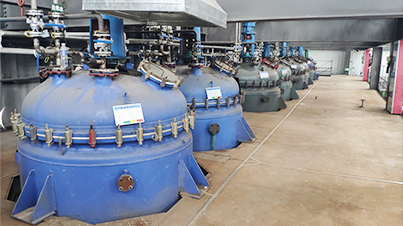scale and corrosion inhibitor for cooling tower
Scale and Corrosion Inhibitors for Cooling Towers
Cooling towers play a pivotal role in the thermal management of industrial processes, power generation, and HVAC systems. They work by dissipating waste heat into the atmosphere through evaporative cooling. However, the efficiency and longevity of cooling towers can be adversely affected by scale formation and corrosion, two common problems encountered in such systems. To mitigate these issues, the use of scale and corrosion inhibitors has become essential. This article explores the nature of scale and corrosion, their implications, and the effectiveness of various inhibitors.
Understanding Scale and Corrosion
Scale Formation Scale refers to the buildup of mineral deposits, primarily composed of calcium, magnesium, and other salts. When water evaporates during the cooling process, these minerals concentrate and precipitate on pipes, heat exchangers, and other surfaces. Over time, scale accumulates, leading to reduced heat transfer efficiency, increased energy consumption, and potential operational failures.
Corrosion Corrosion is the degradation of materials, primarily metals, through chemical reactions with their environment. In cooling tower systems, corrosion can occur due to factors such as dissolved oxygen, low pH levels, and the presence of aggressive ions. This can result in leaks, equipment damage, and increased maintenance costs, compromising system reliability and safety.
The Impact of Scale and Corrosion
Scale and corrosion together can significantly impair the performance of cooling towers. Scale buildup can restrict water flow, necessitating increased pumping energy and frequent maintenance. In severe cases, it can lead to overheating and equipment failure. On the other hand, corrosion can weaken structural components, leading to catastrophic failures that could have safety implications.
Not only do these issues affect the durability and efficiency of cooling systems, but they can also contribute to higher operational costs, environmental concerns, and regulatory non-compliance if not managed properly. Therefore, an effective strategy for managing these problems is crucial.
Role of Inhibitors
scale and corrosion inhibitor for cooling tower

To combat scale and corrosion, various chemical inhibitors are utilized. These inhibitors can be broadly classified into two categories scale inhibitors and corrosion inhibitors.
Scale Inhibitors These chemicals work by disrupting the crystallization process of scale-forming minerals. Common scale inhibitors include polyacrylic acids, phosphonates, and organophosphates. They inhibit the growth of scale crystals, keeping them in a dispersed form to prevent deposition on surfaces. By using scale inhibitors, facilities can enhance heat transfer efficiency, reduce maintenance activities, and extend the lifespan of equipment.
Corrosion Inhibitors Corrosion inhibitors are substances that, when added to a cooling system, significantly reduce the corrosion rate of metals. They can function in several ways, including forming passive films on metal surfaces, scavenging aggressive ions, or adjusting the pH of the water. Common corrosion inhibitors include azoles, phosphates, and amines. The selection of an appropriate corrosion inhibitor is critical, as it must be compatible with the cooling water chemistry and the materials used in the system.
Best Practices for Implementation
Implementing scale and corrosion inhibitors requires a systematic approach. The first step is to carry out a water quality analysis to determine the specific scaling and corrosive tendencies of the cooling water. Based on this analysis, appropriate inhibitors can be selected and dosed accurately.
Regular monitoring of the system is essential to assess the effectiveness of the inhibitors. This includes checking water chemistry parameters such as pH, conductivity, and the concentrations of inhibitors. It may also involve visual inspections for signs of scale or corrosion.
In addition to chemical treatments, combining inhibitors with other best practices—such as proper system design, regular maintenance, and the use of filtration systems—can enhance overall performance and reduce chemical usage, leading to a more sustainable operation.
Conclusion
In summary, the management of scale and corrosion in cooling towers is critical for operational efficiency and equipment longevity. Scale and corrosion inhibitors play an essential role in this management strategy, helping to maintain system performance and reduce the risk of failure. By understanding the nature of these challenges and implementing appropriate inhibitors, facilities can ensure effective cooling tower operation, ultimately leading to increased reliability, efficiency, and cost savings. As industries strive to comply with environmental regulations and achieve sustainable operations, the importance of these inhibitors will continue to grow.
-
lk-319-special-scale-and-corrosion-inhibitor-for-steel-plants-advanced-solutions-for-industrial-water-systemsNewsAug.22,2025
-
flocculant-water-treatment-essential-chemical-solutions-for-purification-processesNewsAug.22,2025
-
isothiazolinones-versatile-microbial-control-agents-for-industrial-and-consumer-applicationsNewsAug.22,2025
-
scale-inhibitor-key-solutions-for-water-system-scale-preventionNewsAug.22,2025
-
organophosphonates-versatile-scale-inhibitors-for-industrial-water-systemsNewsAug.22,2025
-
scale-and-corrosion-inhibitor-essential-chemical-solutions-for-water-system-maintenanceNewsAug.22,2025





